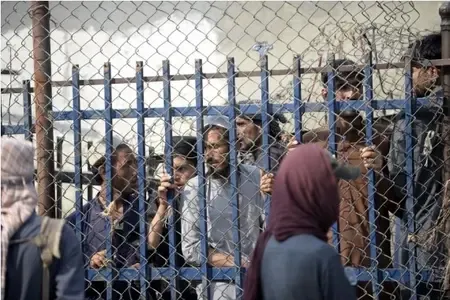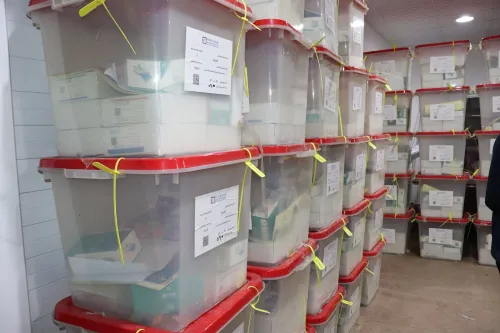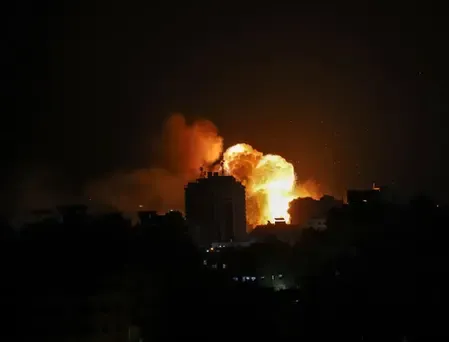Afghan Enterprises Close in Pakistan Amid Deportation Surge

Synopsis
Key Takeaways
- Mass deportation of Afghan refugees in Pakistan.
- Closure of Afghan-owned businesses in Rawalpindi.
- Impact on families and livelihoods of Afghan nationals.
- Concerns raised by international organizations.
- Detention and immediate repatriation of Afghan refugees.
Rawalpindi, April 8 (NationPress) As Pakistan escalates its mass deportation of Afghan refugees, the businesses owned by Afghans in the commercial hubs of Rawalpindi city and its cantonment areas have begun to shut their doors.
With the deadline of March 31 now passed, thousands of Afghan refugees have been sent back to Afghanistan, as reported by local media.
This repatriation has impacted many Afghans who have resided in Pakistan for years, including those born in the country who have never set foot in Afghanistan.
Shopkeepers of Afghan origin in Rawalpindi are reportedly selling off their goods, shuttering their shops, and vanishing, according to The Express Tribune.
Moreover, various vehicles and heavy machinery that were previously owned by Afghan nationals are also being liquidated.
Numerous Afghan-owned stores throughout the city are either closed or have been sold, and several prominent Afghan hotels in both the city and cantonment have ceased operations, with their signage altered.
Meanwhile, individuals forcibly returned stated that they were detained by Pakistani police while working and deported back to Afghanistan, leaving their businesses and family members behind.
“I operated a small hotel at the fruit market. The police conducted a raid, detained me at Haji Camp in Khyber Pakhtunkhwa for four nights, and then deported me through Torkham,” a deportee named Gul Mohammad told Afghan media outlet TOLO news.
Last month, Shujauddin, an Afghan migrant living in Rawalpindi with his family of six, expressed concern about being deported despite holding a valid visa. To prepare, he has started auctioning his household items.
“I rented this shop a year ago for a substantial sum—around 1.8 million Pakistani rupees—and made a significant investment. However, due to the government's actions, I am compelled to relocate,” he explained.
“If I don’t leave, I risk arrest and deportation back to Afghanistan. I’ve put all my shop inventory up for auction at drastically reduced prices,” he added.
A total of 4,966 Afghan refugees returned to Afghanistan on Sunday night, according to a report from Pakistan's leading daily Dawn.
Officials involved in the repatriation process indicated that the deportation operations continued late into the night, and details of the Afghan refugees who left on Monday will be provided later.
In addition to the deportations, a police crackdown in Rawalpindi continues to target Afghan nationals living in the country. On Sunday, Pakistani law enforcement rounded up 736 Afghan nationals, including 140 women and 164 children, who were then taken to an Afghan refugee camp near Golra Mor. Out of the 736 individuals, 179 were deported back to Afghanistan.
Pakistan’s deportation policy has faced criticism, with several international organizations condemning the actions. They have expressed concerns about the serious risks refugees may face upon their return amid the volatile situation in Afghanistan. The Pakistani government, however, has dismissed concerns raised by the UN High Commissioner for Refugees (UNHCR) and other agencies regarding the mass repatriation.










